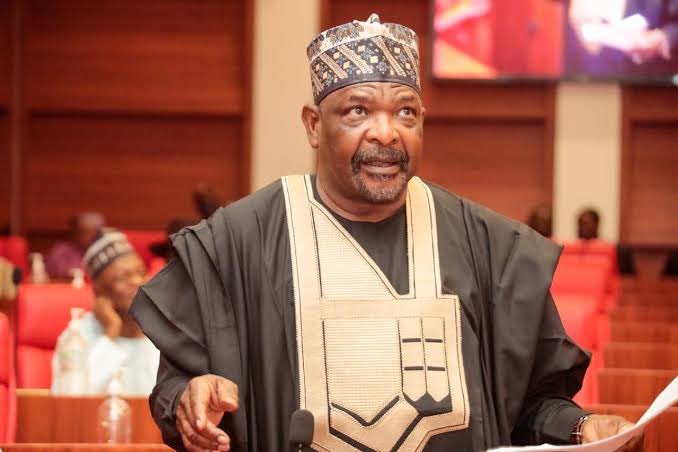The Nigerian Senate has suspended Senator Abdul Ningi of Bauchi State for 3 months over allegations of budget padding, which the latter was said to have made over BBC Hausa service.
In suspending Senator Abdul Ningi from the Senate for the next three months, the Senate relied on and invoked its powers under the Senate Rules to suspend the distinguished Senator. The manner in which the Senate suspended distinguished Senator Abdul Ningi raises fundamental constitutional questions of grave importance to constitutional democracy. For me, what was on display at the suspension was democratic rascality not rooted in good conscience. It was a cover-up decision.
First it is important to note that section 63 of the 1999 Constitution, as amended, provides that lawmakers of both the Senate and the House of Representatives are to sit for a period of not less than 181 days in a year. The sitting of Senators of the Federal Republic of Nigeria is a constitutional matter. It is not a matter to be lightly toy with.
Senator Abdul Ningi is not an employee of the senate of the Federal Republic of Nigeria. No, he is an employee of the good people of Bauchi Central or whichever part of Bauchi he represents. It is the correct position that only an employer has the power to suspend an employee. In democracy the employers of the representatives of the people are the people themselves and not the institutions the people sent their representatives to represent them.
READ ALSO : Peter Obi reacts to the Current Budget scandal
The other point of grave concern is whether the senate who accused the distinguished Senator Abdul Ningi can sit over in judgment to decide and to suspend Senator Abdul Ningi from performing his senatorial duties for the next three months or even for a day.
The allegations of budget padding were against the senate or the Senate President. The senate president presided over the proceedings in which Senator Ningi was tried, convicted, and sentenced to three months suspension. Justice, it is said, is rooted in confidence. You can not be a judge in your own cause is a principle of law of considerable antiquity.
No one it is also said can be the accuser, prosecutor, and judge at the same time. That is what the Senate and the Senate President have done in the suspension of Senator Abdul Ningi. It is against the letter and the spirit of section 36(1) of the constitution of the Federal Republic of Nigeria 1999.
Perhaps the senate does not want the public to know of the alleged padding. What happened in the senate in the suspension of Senator Ningi is democratic despotism and tyranny. The senate is completely intolerant of accountability and public scrutiny of its actions and inactions.
The punishment handed down to Sen Abdul Ningi is simply a gang up punishment.But Nigerians want to know what happened that budgets of some institutions are not captured in the budget passed by the National Assembly.
Nigerians want to know how much constituencies projects were inserted into the budget and who and who gets what. Nigerians want to know what these constituencies projects are and where they are located.
Most of these so-called constituencies projects exist only on papers. So the suspension of senator Abdul Ningi is unconstitutional and ultra vires the senate in my view. Democracy is all about accountability. Nigerians want Nigerian Senate to be accountable.
– Written by Okutepa, SAN

